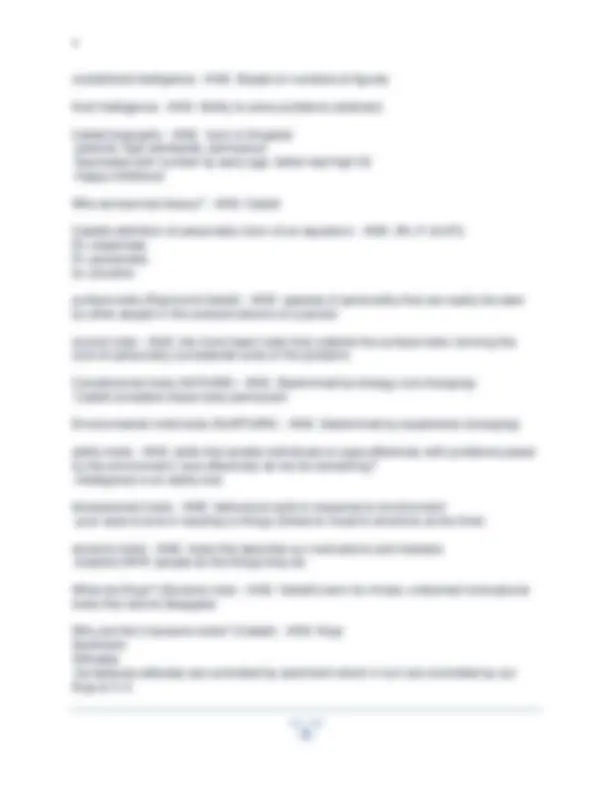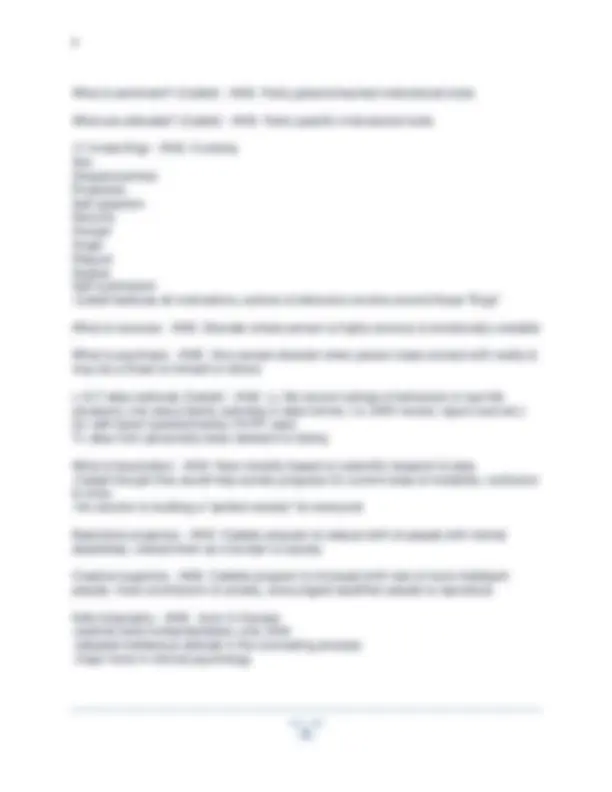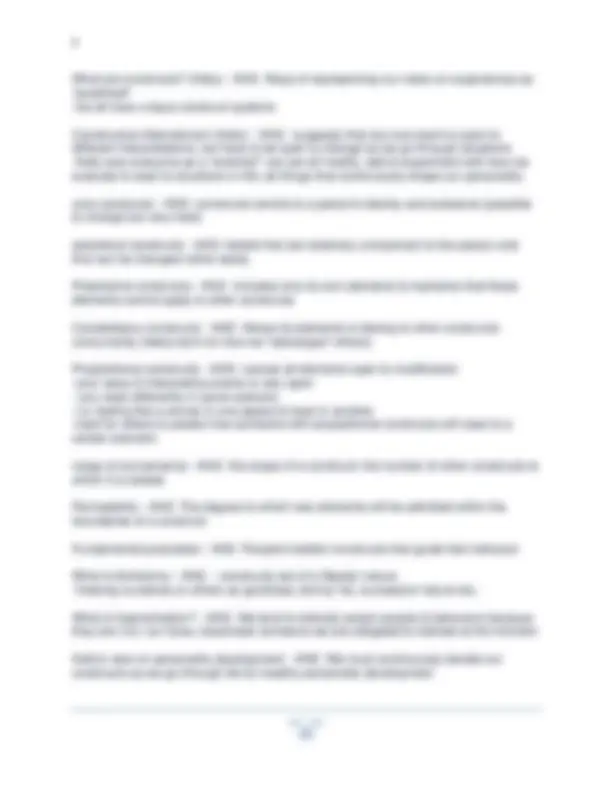





Study with the several resources on Docsity

Earn points by helping other students or get them with a premium plan


Prepare for your exams
Study with the several resources on Docsity

Earn points to download
Earn points by helping other students or get them with a premium plan
Community
Ask the community for help and clear up your study doubts
Discover the best universities in your country according to Docsity users
Free resources
Download our free guides on studying techniques, anxiety management strategies, and thesis advice from Docsity tutors
Psyc 331 Exam 2 Csuf- Souraya matar Questions With Complete Solutions |2024
Typology: Exams
1 / 7

This page cannot be seen from the preview
Don't miss anything!




Erickson Biography - ANS - Mother gave birth out of wedlock, raised by stepfather who he thought was his biological father
What is sentiment? (Cattell) - ANS Fairly general learned motivational traits What are attitudes? (Cattell) - ANS Fairly specific motivational traits 11 innate Ergs - ANS Curiosity Sex Gregariousness Protection Self assertion Security Hunger Anger Disgust Appeal Self submission
What are constructs? (Kelly) - ANS Ways of representing our views on experiences as "good/bad"
authoritative parenting - ANS encourages children to be independent but still places limits and controls on their actions